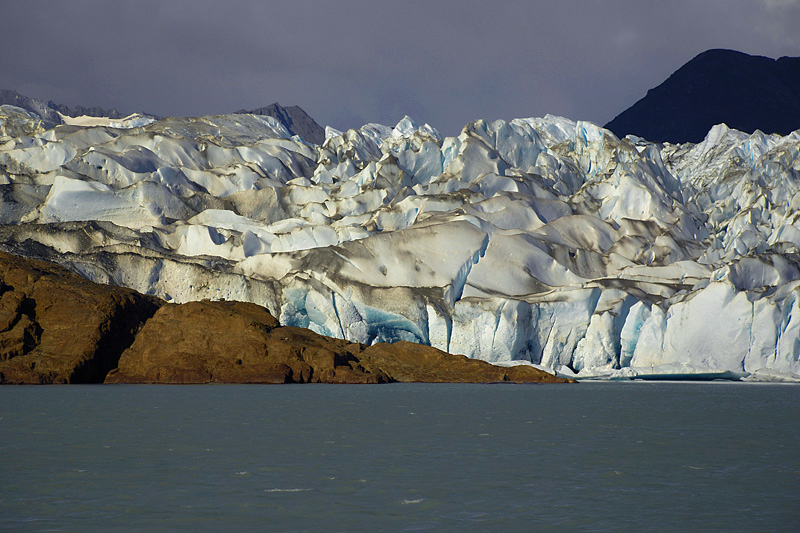
Patagonia is the farthest place to
which man walked from his place of origen.
It is therefore a symbol of his restlessness.
Bruce Chatwin
I am at La Leona, a boliche or roadman's hotel, at a crossroads
in Patagonia. It's a place of some note as the bandit Butch Cassidy
is said to have spent time here. This is prototypical Patagonia, with
roads in every direction stretching to "way over there." Inside
is a long bar with dark walls and paintings of granite spires and glaciers.
Through the window is a line of worn poplars leaning from the constant
wind, and beyond the rolling Pampas, with clouds scurrrying above.
Never precisely defined, Patagonia is much more than half a million square miles of two countries-Argentina and Chile. Because of its remoteness and inaccessibility (regular flights began only recently), Patagonia has ever been a state of mind, a romantic and mythical concept, like Xanadu and Timbuktu.
Patagonia is a magnet for adventurers and those with big dreams, a lingering relic of wild on planet earth. Hence the roll call of geniuses, outlaws, writers, and assorted exiles who have stolen away here (along with the occasional Hollywood recluse, like Stallone). Dig deep and you will find a Patagonian origin of Coleridge's ancient mariner, Dante's hell, and Darwin's revolutionary ideas (he visited on the Beagle).
The first sheep farmers arrived from the Falklands in the late 1800s and changed the face of Patagonia forever. They built a culture, an economy, and huge estancias (ranches) that thrived. But falling wool prices and overgrazing turned the sheep industry belly up in the 1980s. Hundreds of estancias are now windswept deserts, while others have been sold to mogul ranchers, many from the States (Ted Turner).
For
the ecotraveler Patagonia is still an edge of the world destination,
but for how long? The corporate world's vision extends far beyond sheep.
The region is chock full of oil, gas, gold, and fish, and technology
has overcome distance and isolation. It seems certain that the 21st
century will see Patagonia move from the margins to the center of modern
reality.